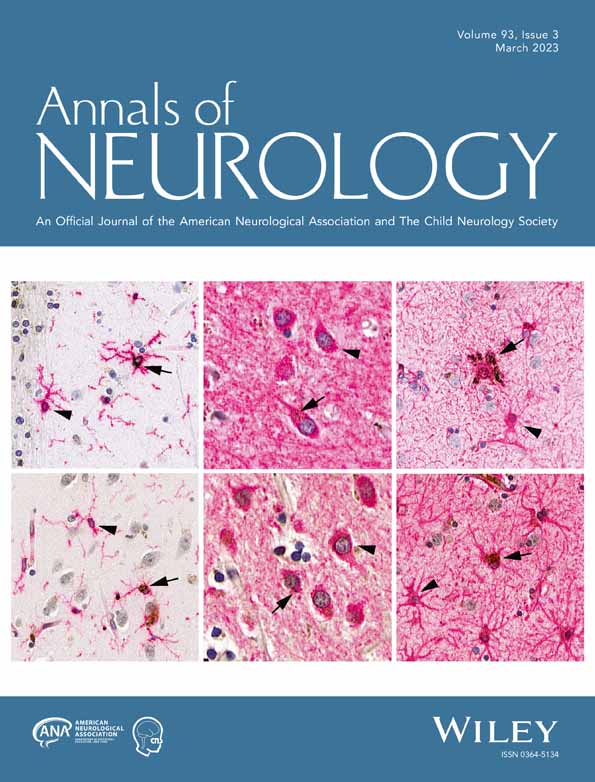Alzheimer's Disease Genetic Risk, Cognition, and Brain Aging in Midlife
Abstract
We examined associations of an Alzheimer's disease (AD) Genetic Risk Score (AD-GRS) and midlife cognitive and neuroimaging outcomes in 1,252 middle-aged participants (311 with brain MRI). A higher AD-GRS based on 25 previously identified loci (excluding apolipoprotein E [APOE]) was associated with worse Montreal Cognitive Assessment (−0.14 standard deviation [SD] [95% confidence interval {CI}: -0.26, −0.02]), older machine learning predicted brain age (2.35 years[95%CI: 0.01, 4.69]), and white matter hyperintensity volume (0.35 SD [95% CI: 0.00, 0.71]), but not with a composite cognitive outcome, total brain, or hippocampal volume. APOE ε4 allele was not associated with any outcomes. AD risk genes beyond APOE may contribute to subclinical differences in cognition and brain health in midlife. ANN NEUROL 2023;93:629–634
Potential Conflict of Interest
WDB, MF, MH, and KY report grant funding from NIH. None of the funding sources had involvement in the conduct of this research or preparation of the manuscript. Unrelated to this current study, KY is a Board Member of Alector.
Open Research
Data Availability Statement
CARDIA data is available for approved research projects, see more details at https://www.cardia.dopm.uab.edu/.




